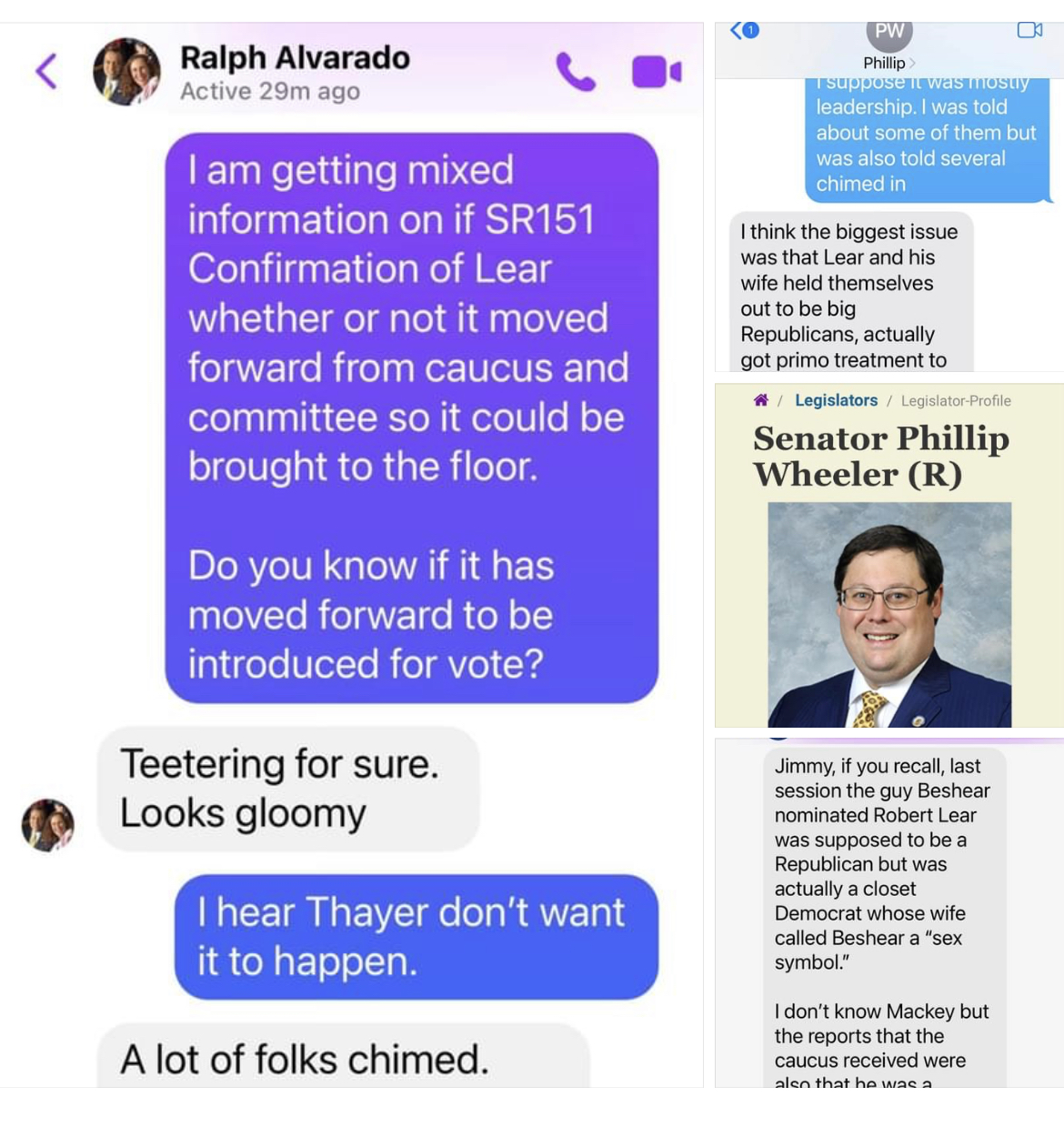
In 2021, Kentucky lawmakers enacted a bill that removed them from the open records law — and deprived the public of a meaningful legal mechanism for challenging denials of legislative records requests. They argued that it was necessary to protect the privacy of constituents who shared, for example, their medical conditions and their social security numbers with them.
https://apps.legislature.ky.gov/record/21rs/hb312.html
The Kentucky Open Government Coalition had doubts. We questioned their arguments in support of the 2021 bill, asking for actual cases in which the legislature was required to disclose constituent email. We pointed out that if constituent email was, in fact, released, the legislature voluntarily disclosed it (and waived multiple exceptions to the open records law authorizing nondisclosure of records containing information of a personal nature, correspondence with private individuals, and purely personal communications).
We suspected that what lawmakers actually sought to hide were communications that verify, for example, the exercise of undue/improper influence on their decision making.
This suspicion was confirmed late last week when the Senate considered two resolutions to confirm gubernatorial nominations — one to the Public Service Commission and the other to the Kentucky Department for Fish and Wildlife Resources Commission.
https://www.ket.org/legislature/archives/?nola=WGAOS+023164&stream=aHR0…
If there was any doubt about the reasons for last year’s law insulating the legislature from the open records laws •before• the February 24 confirmation “process,” there was certainly none •after•.
Senator Robert Stivers “sponsored” the resolutions to confirm the nominees whose characters he maligned and whose defeat he openly orchestrated — the only aspect of the confirmation “process” that was open.
https://apps.legislature.ky.gov/record/22rs/sr135.html
https://apps.legislature.ky.gov/record/22rs/sr138.html
The purported “vetting” process was undermined, to begin, when Stivers refused to yield to question about his strongly worded attacks on both nominees. In essence, Stivers angrily proclaimed that he would not answer questions about the nominees and that he would not identify the sources of the (mis)information on which he based his plea that senators vote “no” to confirmation.
We know very little about the Public Service Commission nominee who was rejected. We do, however, understand the importance of the PSC as a check on powerful utilities’ overreach and a balance for ratepayers’ interests.
We know more about the nominee for the Department of Fish and Wildlife Resources Commission, Brian Mackey.
Mackey reached out to the Coalition months before his nomination to ask questions about the open records law and later to share the unfortunate outcome of an open records appeal to the Kentucky Attorney General
He exercised his statutory right to request named Department and Commission members internal communications, and external communications with named legislators on both public and private devices and accounts.
He exercised his statutory right to file — with the Kentucky Attorney General — an appeal of the Department’s denial of that part of his request that specified public communications on private devices and accounts.
He forewent the statutory right to appeal the Attorney General’s poorly reasoned open records decision when the sportsmen and sportswomen in his district chose him to serve as their commissioner on the Department of Fish and Wildlife Resources Commission and Governor Beshear nominated him for the post.
(The Coalition subsequently made a similar request to the Commission. That open records case is pending in Kentucky’s appellate courts.)
Mackey accepted the nomination to serve the sportsmen and sportswomen of Kentucky by “keep[ing] a watchful eye upon the Department of Fish and Wildlife Resources.” If this meant disturbing the status quo, he was prepared for the task.
https://apps.legislature.ky.gov/law/statutes/statute.aspx?id=48914
This, it seems, was the “offensive” conduct that prompted Stivers to urge senators to vote “no” to the resolution confirming Mackey’s nomination Stiver’s brought to the Senate floor on February 24. He ascribes his criticism of Mackey to his “understanding from members on the Commission [that] there is disruption and consternation” that necessitate his immediate removal e from the Commission.
And with that, Stivers may have just overplayed his hand. His verbal misstep establishes, at a minimum, that commissioners directly communicated their frustration that Mackey was not a “Team Kentucky” player to influence senators not to confirm him (and/or indirectly communicated misinformation about Mackey through Department official to defeat his nomination).
Business as usual, you might think?
Perhaps. But Kentucky law expressly prohibits an “employee or officer of the department including the commissioner . . . [from] us[ing] his office or influence . . . for the purpose of directly or indirectly influencing any person in the selection or appointment of a member to the commission.” Department employees and officers may have a serious problem.
https://apps.legislature.ky.gov/law/statutes/statute.aspx?id=1949
Emails exchanged by senators and their constituents, and made public by those constituents in the days following the defeat of Mackey’s confirmation verify Department employee’s and officer’s apparent influence peddling to defeat Mackey’s and a previous nomination.
https://www.facebook.com/100002608356369/posts/4775964515833780/?d=n
Lawmakers’ lofty claims that their intention in removing themselves from the open records law was to protect constituent privacy rights ring hollow. Their enactment of HB 312 in 2021 was motivated by a desire to insulate records confirming these backroom deals from public scrutiny.
And those pesky laws prohibiting Department of Fish and Wildlife Resources employee and officer influence peddling in the confirmation process for Commission nominees?
No worries — lawmakers can simply amend bills already introduced in the 2022 legislative session relating to Fish and Wildlife to eliminate the prohibition and, with it, any hope for an independent commissioner and a truly watchful eye on the department. They may even make them retroactive!!!


